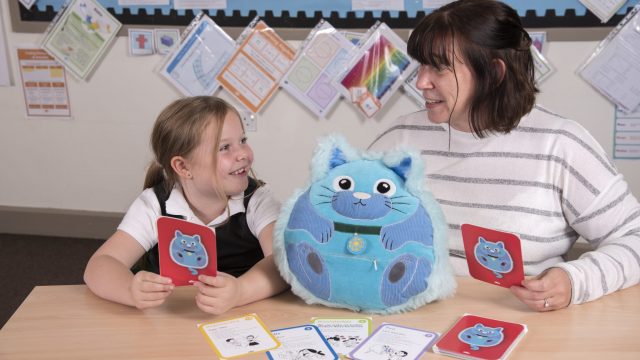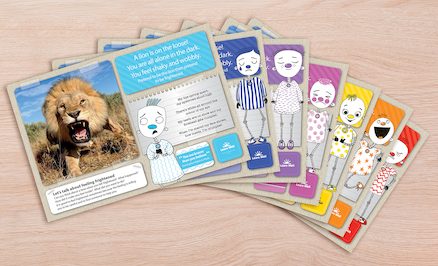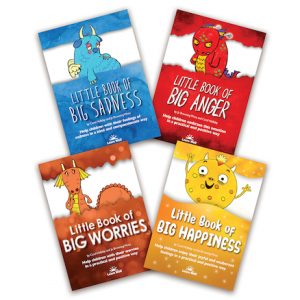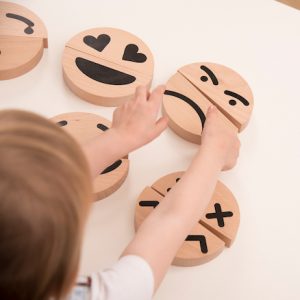Over the past few years, it has felt at times that primary teachers have had to become experts overnight in a whole series of new, confusing, frightening and incomprehensible events. ‘Protecting’ even the youngest children from news stories by simply not talking about them is no longer an option, due to the ever-decreasing age of children accessing internet sites and social media. Teachers might have found themselves having to field questions and manage anxieties about terrorist attacks, Brexit, war, and – of course – Covid, both pre- and post-lockdown. And, obviously, none of the universal, enduring issues will have gone away: friendship difficulties, bullying, online behaviour, healthy eating, puberty etc. remain ever-present.
PSHE is unique as a curriculum subject because it has such an immediate relevance to children’s lives. What they learn about in the classroom they can see going on around them. They can use the skills developed when they get home, or next month, or in ten years’ time.
Inevitably though, PSHE in primary schools can also be the ‘safe space’ where children feel able to talk about what’s happening in the world, and what’s on their mind right now. It’s where a teacher can explore something that they have observed is affecting pupils, or address reactions to an unforeseen event. These unplanned-for moments are not a substitution for curriculum content, but they can be just as relevant, and should be considered and managed just as safely and effectively.
Protective teaching
When an upsetting national or international event occurs, children will find out about it in a myriad of different ways. This can depend on who they live with, the media they can access, who they speak to or even how much attention they pay to what goes on around them. They might see and hear truths, half-truths, untruths, inaccuracies, rumour or speculation, or they might just see an image and form their own conclusions. However they access the information, it may create feelings of confusion, anxiety or fear, or simply raise questions that they will want to ask and process. This can challenge a teacher, who may have exactly the same feelings and questions themselves, but will need to provide an environment in which their pupils can feel safe to explore these together.
How you manage this within a PSHE lesson will be dependent on an event and the direct or indirect impact it may have on your pupils, but also their age and stage of development, the school’s ethos and values, and how well you know the children in your class.
Here are some broad, practical pointers:
Offer reassurance
Unforeseen, shocking events such as a terrorist attack are rare, and you can use this fact to reassure a child who might be afraid that similar will happen to them or their families. It might be harder to offer such reassurance about events such as war, for example, especially as children may have family in countries affected by war, or know refugees who have escaped it. In situations like this, you can offer reassurance by reminding children of the people who love and care for them, and that these people would look after them and keep them as safe as they could if any such thing did happen to them.

Enable questions and be honest
Another way to help children feel reassured and safe is by encouraging questions and giving honest responses. Dismissing, ignoring or evading the questions which children will invariably bring into school can increase their fear or anxiety about an event. Being open to questions and replying in an honest and age-appropriate way (even if it’s ‘I don’t know the answer to that’ or ‘Nobody fully understands why people behave in that way’) will help to allay fears, but also enable children to separate fact from fiction. Provide a way for children to ask questions anonymously if they prefer, and decide the most appropriate way to respond. This could be within time set aside with the whole class (e.g. as part of a circle time type activity), directly with individuals, as questions arise, or a combination of all three approaches (see also last month’s blog: Managing tricky questions).
Separate facts from rumour, speculation and lies
Help children understand that not everything they read or hear may be true, even if they hear it from someone they know, or read it online (this can also feed in to curriculum work around media literacy, factual language, and recognition of ‘fake news’ more generally). Listen to children’s perceptions of an event and help them distinguish between known facts, speculation and rumour, and call out any untruths you hear. Clarify facts: the things we know for certain, as reported by trusted news services such as the BBC (e.g. ‘Russian tanks have entered Ukraine’; ‘A bomb exploded in … last night’). Explain that speculation is making guesses about what may have happened, whether we know or not (e.g ‘It looks like…’; ‘It seems as though…’) and rumour might be based on a truth, but actually not be true at all – usually rumours change a little bit each time someone repeats them. Tell them to watch out for words and phrases like ‘apparently’; ‘My friend’s cousin said’ or ‘Someone shared it on Facebook’. When you hear children repeating rumour make sure your response is based on bringing them back to the facts, rather than appearing to make a judgement on the person from whom they heard the rumour, who may be someone they respect and trust.

Talk about feelings
Children will have all kinds of feelings when a significant event has affected them, but they may not know what these feelings are, or how to articulate them. Some of the feelings they express may come across as inappropriate to an adult, such as excitement or curiosity. Some children may appear uninterested, or to be ignoring what has happened, while others might be very open with their emotions. Give children the space to discuss their feelings if they want to, but do not pressure them to do this. It may be that they will ask questions first and may not be able to process how they think or feel until they have some distance from the event. A safe and unthreatening way to explore confusing feelings can be through picture books or stories, which enable children to ‘distance’ themselves from an event and ‘experience’ it through someone else.
Unite, don’t separate
Some children may make divisive comments, or seek to ‘blame’ another group of people for an event. You may hear stereotypical comments about different countries, or even directed at other children within school. A Circle Time lesson or similar could be used to challenge this kind of language and thinking by discussing the dangers of stereotyping based on the behaviour of a minority, and looking at issues around diversity, inclusion and acceptance of difference. You could also feed this into wider curriculum work about difference, which is a statutory part of the new Relationships education guidance. It is important to pick out similarities of experience e.g. by showing that people in almost every country across the world were impacted by Covid, or that there are people in a country that do not support what the government of that country is doing.

Further reading
- Talking to primary children about a terrorist attack (PSHE Association): guidance produced for schools in 2017 which remains relevant for teachers today.
- Max Counts to a Million teaching resource pack (Nosy Crow): this story for years 5-6 tells the story of Max and how he managed the experience of the first lockdown in Spring 2020. It is accompanied by a teacher resource pack of activities and questions to help explore some of its themes.
- War in Ukraine: What’s happening there (Newsround): a special report explaining the initial invasion of Ukraine, along with the context and history of the country and its relationship with Russia.
- Book list: Books about refugees and asylum seekers for younger children (also links to a list for older children) (Booktrust): a range of picture books, stories and novels for older children on the theme of refugees, asylum seeks, difference and acceptance.
Thank you very much to Lucy Marcovitch for sharing this third blog in the six part series for us.
Lucy is a writer and educator with over 25 years experience in education. She began her teaching career in Leeds primary schools, then moved into resource writing and development. She spent 10 years as the National Curriculum advisor for PSHE education, which included participating in two National curriculum reviews, and developing the first national guidance, training and assessment resources for the subject. Her consultancy work includes developing and writing classroom resources and guidance materials, and educator training and guidance for a variety of charities and commercial clients including the BBC, Teach First, Hopscotch Consulting and Discovery Education. She is a part-time lecturer on the Childhood, Youth and Education studies BA at Coventry University.




